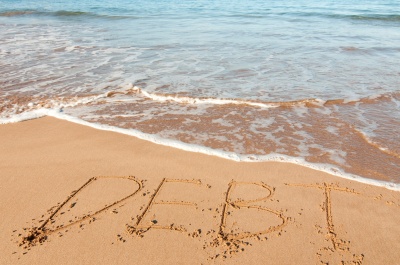Should You Use a Cash-Out Refinance to Consolidate High-Interest Debt?

Many homeowners refinance to pay off debt that has built up over time, such as credit cards and auto loans. If you find yourself struggling with high-interest debt, you’re not alone. According to Experian, the average American household has $92,727 in personal debt.
For homeowners, the good news is that you can use a cash-out refinance to pay off debt. With a cash-out refinance homeowners get a mortgage for more than they owe on the home. In turn, they can take the difference in cash and pay off high-interest debt with it, which helps them to save more money over the long term.
Mortgage interest rates can be an amazing bargain compared to consumer and installment rates. Total interest, total term, and cash flow savings can be significant with the right plan.
Consolidating multiple debts into one home loan is not for everyone. For instance, using your equity to have the equivalent of a 30-year car loan is rarely a great idea. But it may work if you have the discipline to take advantage of a low rate to speed up—rather than slow down—payment terms. Consolidation can make debts disappear with less total interest expense than they would otherwise.
Homeowners’ Equity is On the Rise
Now could be a great time to cash-out home equity and pay off debts. According to CoreLogic, equity levels rose by nearly 30% between 2020 and 2021. Plus, believe it or not, mortgage rates are still low. Qualified homeowners may be able to significantly lower their debt payments and increase their monthly cash flow by using a cash-out refinance.
Homeowners looking to refinance to pay off debt must make sure they have enough equity. For instance, if 80% of the home’s value is owed after you refi, you’ll have to buy mortgage insurance. This is something you’ll want to avoid.
How to Calculate Your Loan to Value (LTV)
How is an LTV calculated? Simply divide your current mortgage balance by the approximate value of your home to get your loan to value ratio.
How to Qualify for A Cash-Out Refinance
Lenders usually check to see that you have a credit score of 620 or higher and enough equity in your home that you can keep 20% equity after the refinance.
Reason to Use a Cash-Out Refinance to Consolidate Debt
One of the main reasons homeowners consider using a cash-out refinance to consolidate debt is that you can typically get a lower rate on a mortgage loan than you can with personal loans. Some other benefits can include:
- Paying off high-interest debt faster
- Frees up extra cash for other expenses
- Consolidating debt makes it easier to manage monthly payments
- Mortgage Interest may be tax-deductible (always consult a tax or financial planning professional to discuss your specific situation)
Bottom Line:
If you have high-interest debt hanging around and eating away at your monthly budget, a cash-out refinance may be the solution you’re looking for. This will allow you to reduce your monthly payments but also frees up extra money for living expenses, savings, and beyond.
Questions?
Talking about your options with a member of our dedicated loan team can help you make the best decision for your specific scenario. Speak with one of our expert Loan Officers to explore what a good consolidation plan could mean for you.


.png)

